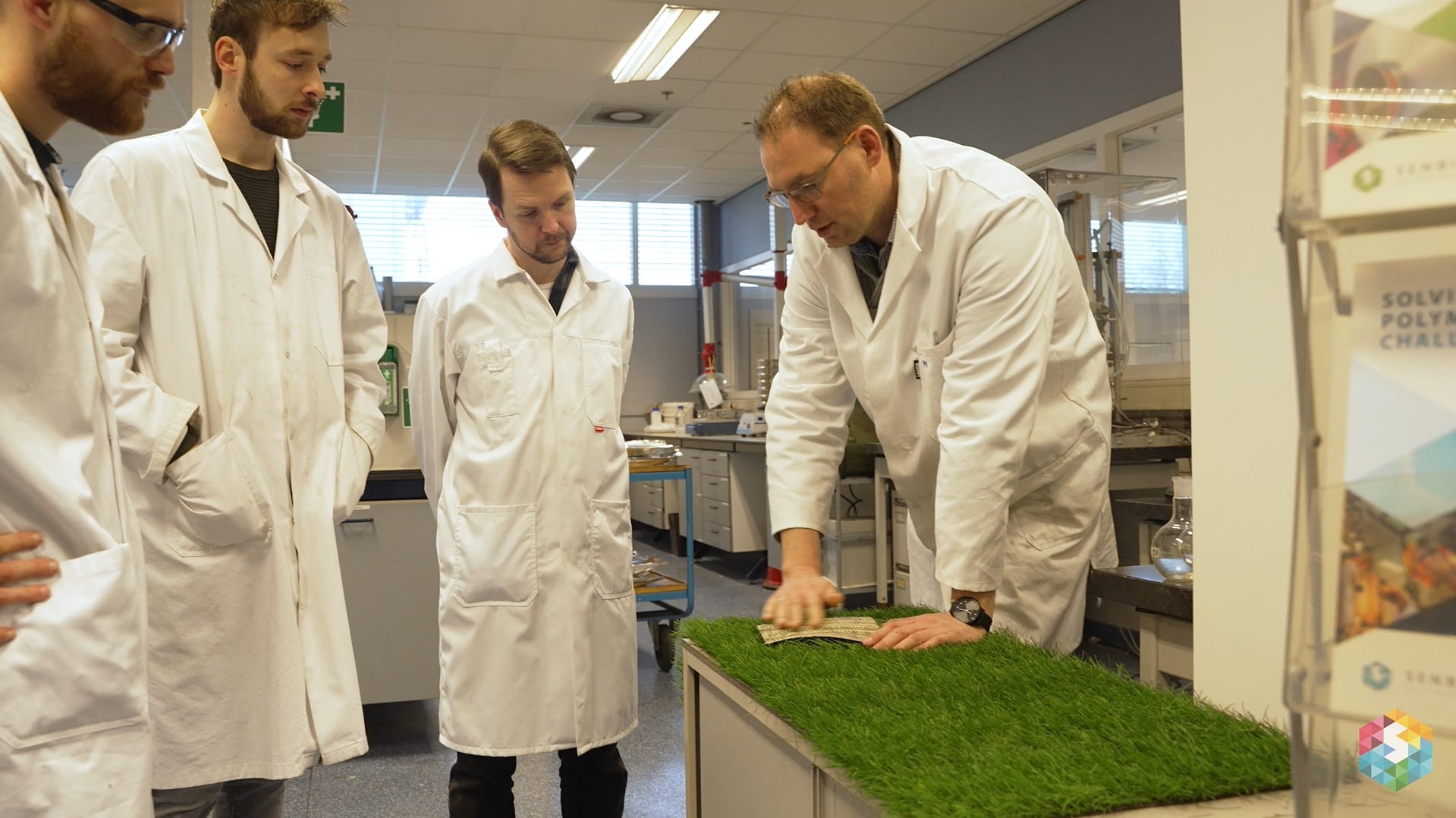
At Senbis, students have the possibility to be actively involved in important (sub)research. Working with a unique set of R&D machinery, laboratory and a team of polymer experts boosts the learning curve of interns. We offer an internship program to work on different topics and technologies and a graduation program to focus on one specific R&D topic.
Many research efforts are focusing on 3D printing and biopolymer applications, mostly in the form of mono- or multifilaments. Senbis is developing these products to realize new ‘spin-off’ business activities. Some important topics for the spin-off efforts concern:
- A new biodegradable polyester resin (polycondensation synthesis)
- High performance biodegradable monofilaments (like our trimmerline)
- High performance biodegradable yarns and fibers
- Biodegradable artificial grass components
- (Bio)polymer and additive selection
- Processing settings
- Property determination (from mechanical, thermal or rheological testing, to chemical resistance, to 3D printability)
- Physical structure analyses
Internship program
Graduation program
During the graduation program the knowledge gained during the earlier internship is very helpful to dive more scientifically into one of the major topics for our spin-off projects. Examples of current research questions are:
- Which combinations of (bio)polymers supply the best mechanical and thermal properties for a biodegradable trimmer line?
- Can creep in yarns be reduced by adding additives or changing machine settings during spinning?
- Which after-treatment is needed to optimize the mechanical properties of our trimmer line?
- How to improve the resilience properties of artificial grass yarns
Activities during the internship or graduation program
- Polycondensation trials (synthesis of new bioplastics)
- Build up and fine tune extruders to produce filaments
- Build up and fine tune drawing processes
- Perform spinning and drawing trials with all kinds of (bio)polymer blends
- Determine optimal drawing ratios and map out the consequential (mechanical)properties
- Test product performance in the intended applications
- Desk research to find potential materials
- Trace back what kind of changes are taking place at a molecular level during the extrusion and drawing by utilizing methods such as IR, Microscopy, X-ray diffraction or DSC
- Execute different analyses (mechanical, thermal, rheological) in the polymer laboratory of Senbis and at partners
- Evaluate conclusions on a regular basis with colleagues. These findings can lead to new research directions
- Reporting
Got interested? Please send us your CV and motivation letter to [email protected] or upload your documents on this page. We are looking forward to hearing from you!
